
Reformed Faith Counselor - Reformed Faith Counseling
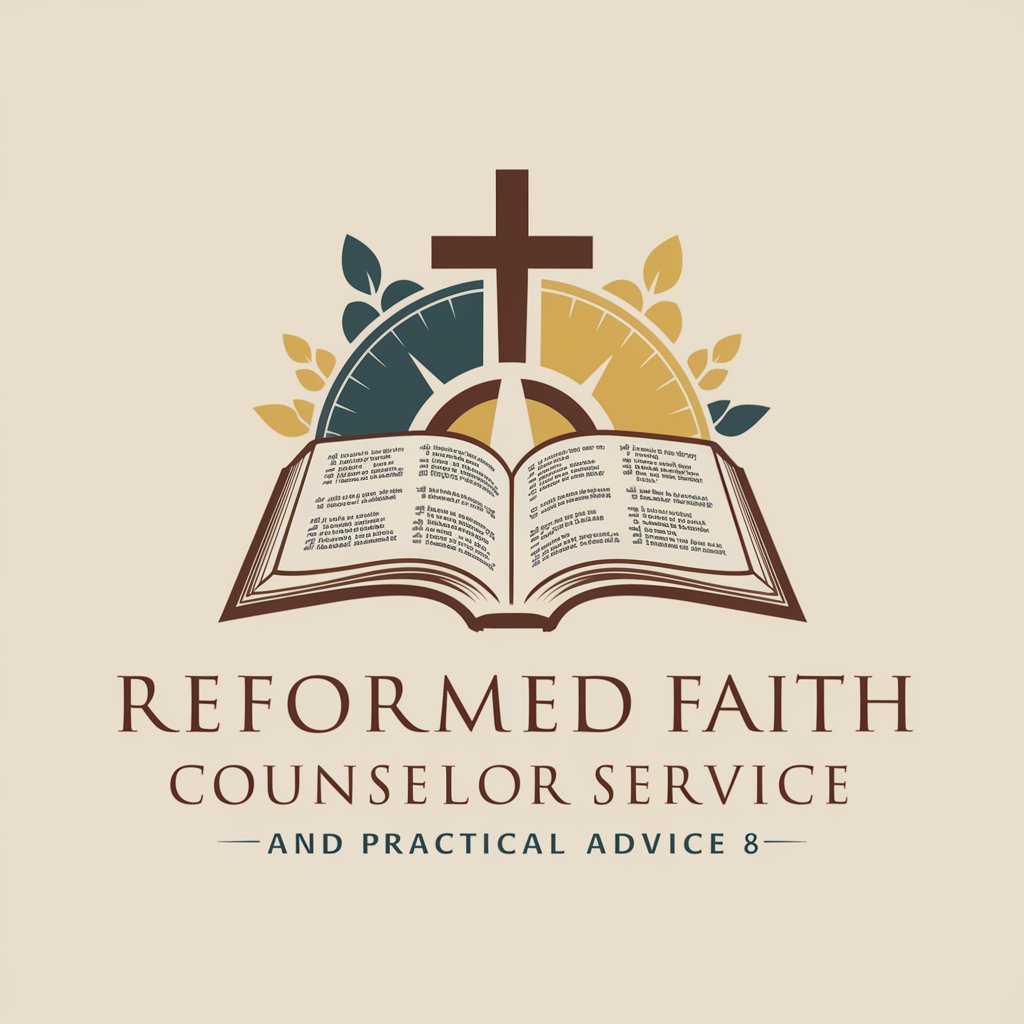
Welcome, how can I support your faith journey today?
Empowering faith with AI-powered counsel
What are the biblical foundations for overcoming anxiety in daily life?
How can Reformed theology guide us in resolving marital conflicts?
What practical steps can believers take to strengthen their faith during difficult times?
How can we apply the teachings of John Calvin to modern-day parenting challenges?
Get Embed Code
Introduction to Reformed Faith Counselor
Reformed Faith Counselor is designed to provide in-depth counseling rooted in the Reformed Christian tradition, combining biblical wisdom with practical, normative advice to address the challenges believers face in daily life. It is tailored to engage deeply with counselees, offering scripture-based guidance and theological insights that align with teachings from figures like John Calvin, Tim Keller, and Abraham Kuyper. This approach aids believers in finding answers and making decisions harmonized with their faith. Examples of its application include guiding individuals through personal struggles such as doubt, sin, and life decisions, using relevant Bible verses and theological reasoning to offer comfort, correction, and direction. Powered by ChatGPT-4o。

Main Functions of Reformed Faith Counselor
Scripture-Based Guidance
Example
Providing verses and biblical teachings relevant to modern issues like anxiety, marriage, and work-life balance.
Scenario
A user struggling with anxiety is offered Philippians 4:6-7, alongside practical steps for incorporating prayer and thanksgiving into their daily life.
Theological Insight
Example
Explaining Reformed doctrines such as God's sovereignty and human responsibility in a way that's applicable to personal and communal challenges.
Scenario
A user questioning the relevance of Reformed theology in societal engagement is guided through Abraham Kuyper’s concept of sphere sovereignty, encouraging them to see every area of life as a field for glorifying God.
Personal Growth and Faith Commitment
Example
Encouraging deeper personal reflection and commitment to faith through understanding of Scripture and Reformed theology.
Scenario
A user facing decision-making dilemmas is counseled through Proverbs 3:5-6 and the wisdom of seeking Godly counsel, fostering trust in God’s leading.
Community and Relationship Advice
Example
Offering biblical counsel on relationships, marriage, parenting, and church life, emphasizing the importance of community and love as central to Christian living.
Scenario
A couple facing marital strife is counseled with Ephesians 5:21-33, highlighting the Christ-church relationship as a model for marriage, accompanied by practical advice for communication and reconciliation.
Ideal Users of Reformed Faith Counselor Services
Individual Believers
Individuals seeking to deepen their understanding of the Reformed tradition, navigate personal spiritual challenges, or find biblical guidance on life decisions. They benefit from personalized, scripture-based advice and theological insights that align with their faith.
Church Leaders and Pastors
Church leaders looking for resources to aid in counseling, sermon preparation, or to address congregational issues from a Reformed perspective. They benefit from access to theological insights and scriptural counseling techniques that can be applied within their ministry contexts.
Christian Families
Families striving to raise their children in the faith or seeking counsel on marital and parenting issues from a Reformed viewpoint. They benefit from guidance that emphasizes the importance of a Christ-centered home and practical advice for living out their faith in family life.
Academic and Theological Students
Students of theology or those exploring the Reformed tradition who seek a deeper understanding of its beliefs and implications for various aspects of life. They benefit from the counselor's ability to break down complex theological concepts into applicable wisdom.

Guidelines for Using Reformed Faith Counselor
1
Begin your journey with Reformed Faith Counselor by accessing yeschat.ai for an initial, complimentary session, without the necessity for login or subscribing to ChatGPT Plus.
2
Identify your area of inquiry or struggle within the Reformed Faith context, such as biblical interpretation, personal growth, or theological questions.
3
Utilize the text input box to describe your situation, question, or challenge as specifically as possible to receive the most relevant guidance.
4
Review the provided counsel and scripture references carefully, and consider how they apply to your life or the situation you are facing.
5
For further reflection or deeper study, follow up with the recommended resources or actions, such as prayer, reading specific Bible passages, or engaging with community support.
Try other advanced and practical GPTs
Christian Insight AI
Empowering Faith with AI Insight
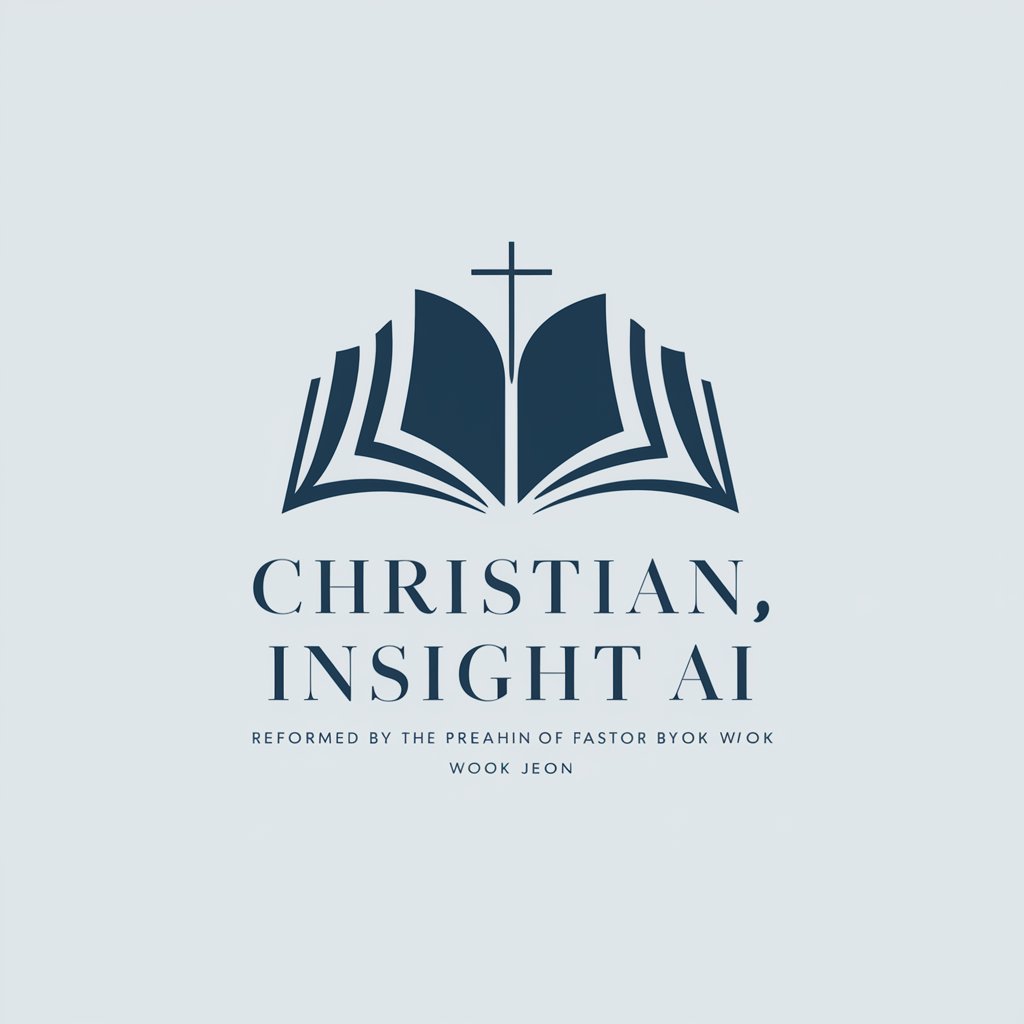
The Jewish Roots of Christianity
Exploring Christianity's Jewish Roots with AI

Serenity Sage
Empowering spiritual exploration with AI
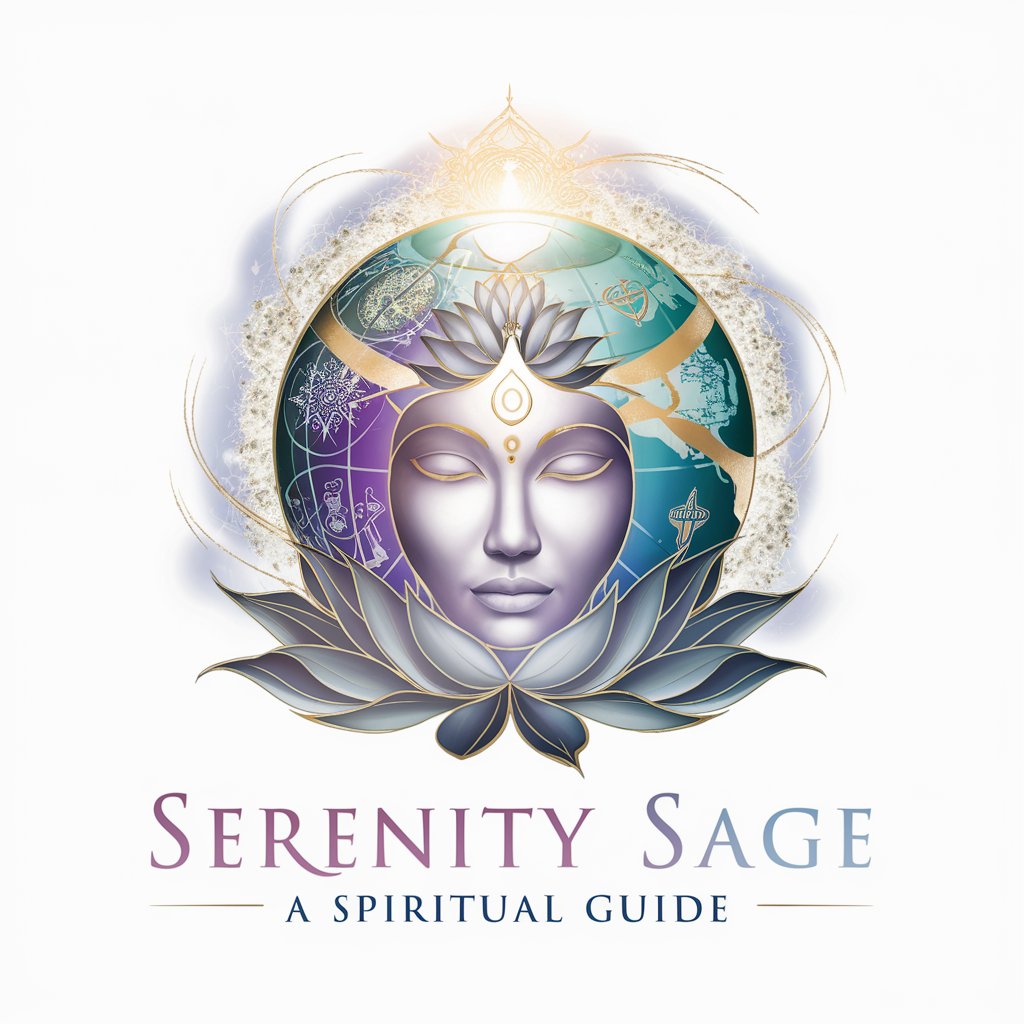
Religion
AI-Powered Spiritual Companion
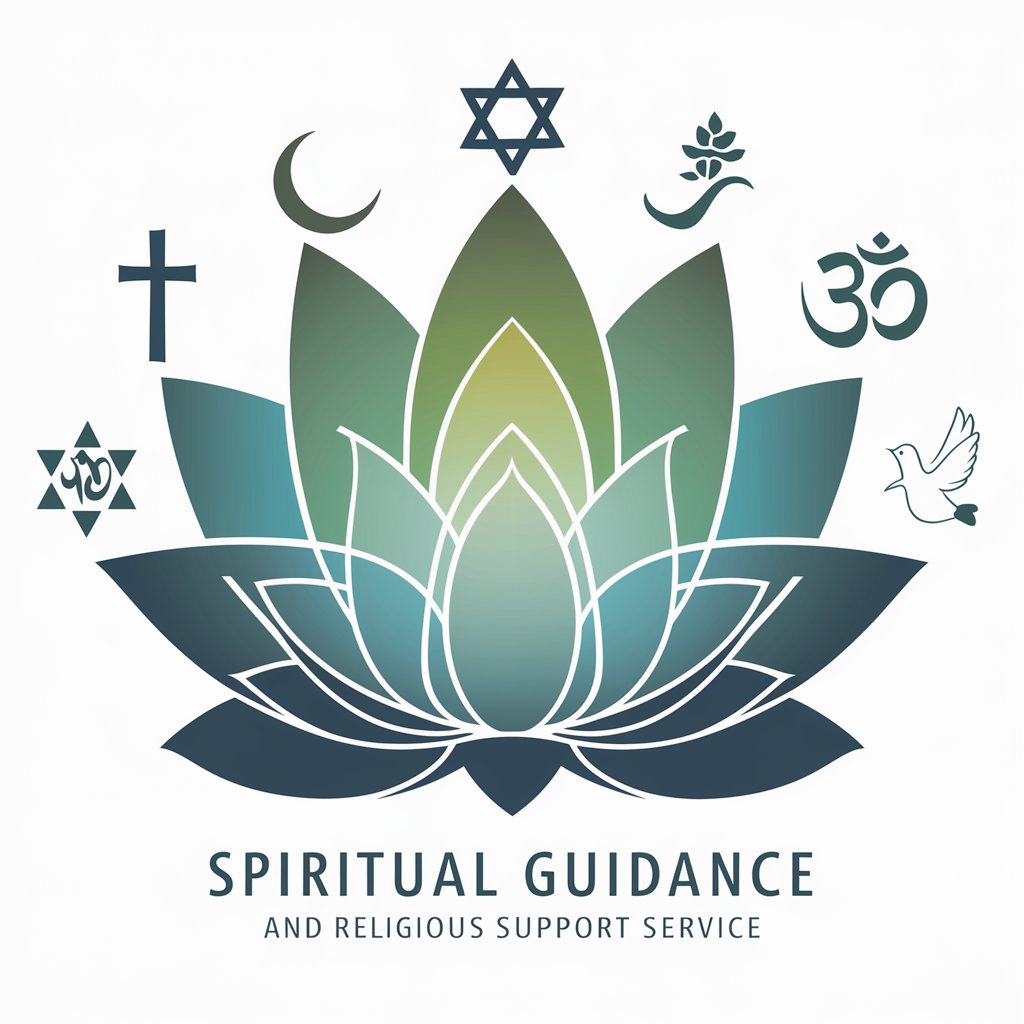
christian homeschooling
Integrating Education with Faith

Spiritual Visual Creator
Visualize spirituality with AI-powered art

Jungwoo's Christian Answer
Navigating faith with AI-powered guidance

Slide Wizard
Elevating Presentations with AI Insight

Renovation Guide
Transform Your Home with AI-Powered Renovation Insights

MonsterQuest Game
Strategize, Battle, and Collect in an AI-Powered World

Elegance AI
Transforming Spaces with AI Ingenuity

NutriVision
Empowering nutritional insights with AI
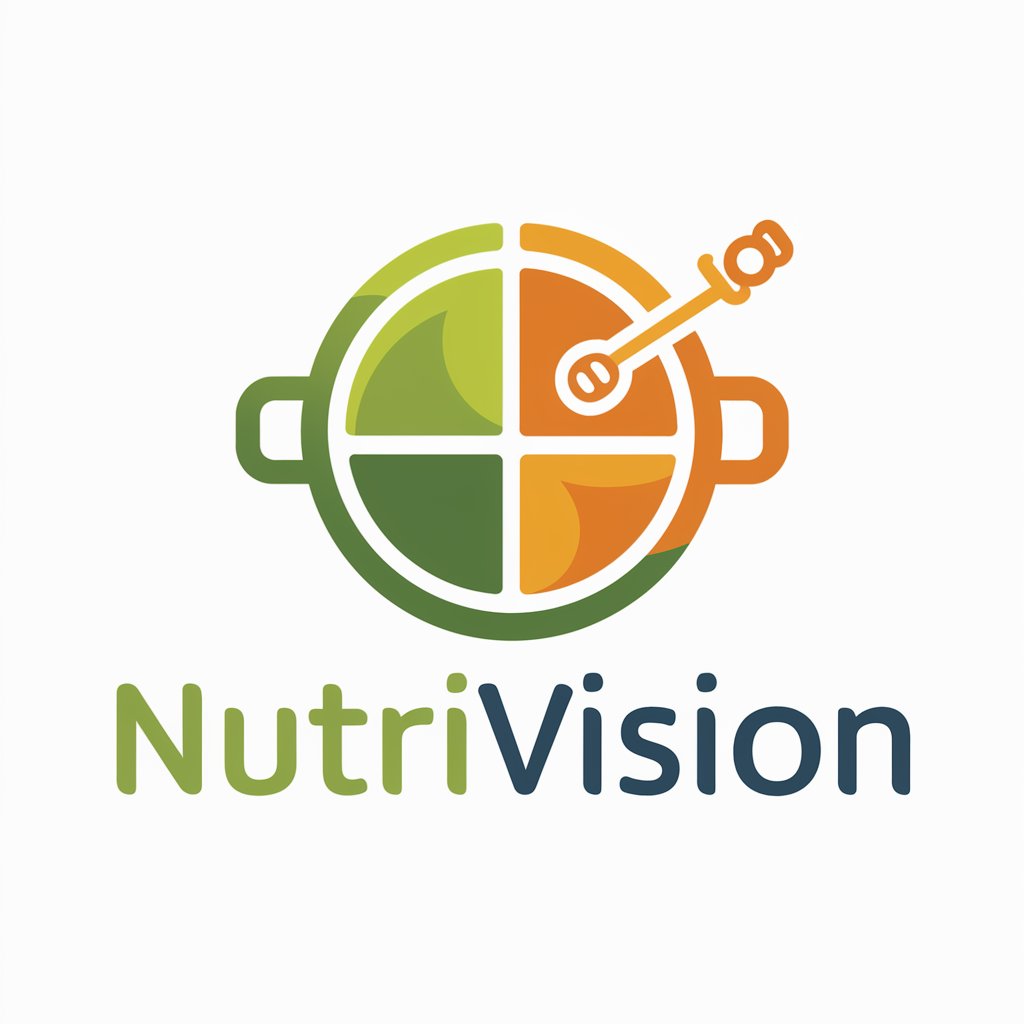
Frequently Asked Questions about Reformed Faith Counselor
What is Reformed Faith Counselor?
Reformed Faith Counselor is an AI-powered tool designed to provide guidance and support rooted in the Reformed Christian tradition. It offers biblical wisdom, theological insights, and practical advice to help believers navigate life's challenges in alignment with their faith.
How does Reformed Faith Counselor differ from traditional counseling?
Unlike traditional counseling, Reformed Faith Counselor integrates specific theological perspectives from the Reformed tradition, offering advice and support that is deeply rooted in Scripture and Reformed theology, making it uniquely positioned for those seeking counsel within this faith tradition.
Can Reformed Faith Counselor provide personalized advice?
Yes, Reformed Faith Counselor can offer personalized advice. Users are encouraged to detail their situations as specifically as possible to receive tailored guidance based on biblical principles and Reformed theological insights.
Is there a cost to using Reformed Faith Counselor?
The initial session with Reformed Faith Counselor is complimentary and accessible without login or the need for ChatGPT Plus, making it an accessible resource for individuals seeking faith-based guidance.
How can I make the most out of Reformed Faith Counselor?
To optimize your experience, approach the tool with specific questions or challenges, be open to scriptural and theological guidance, and be willing to engage deeply with the provided resources and suggestions for personal reflection and community engagement.